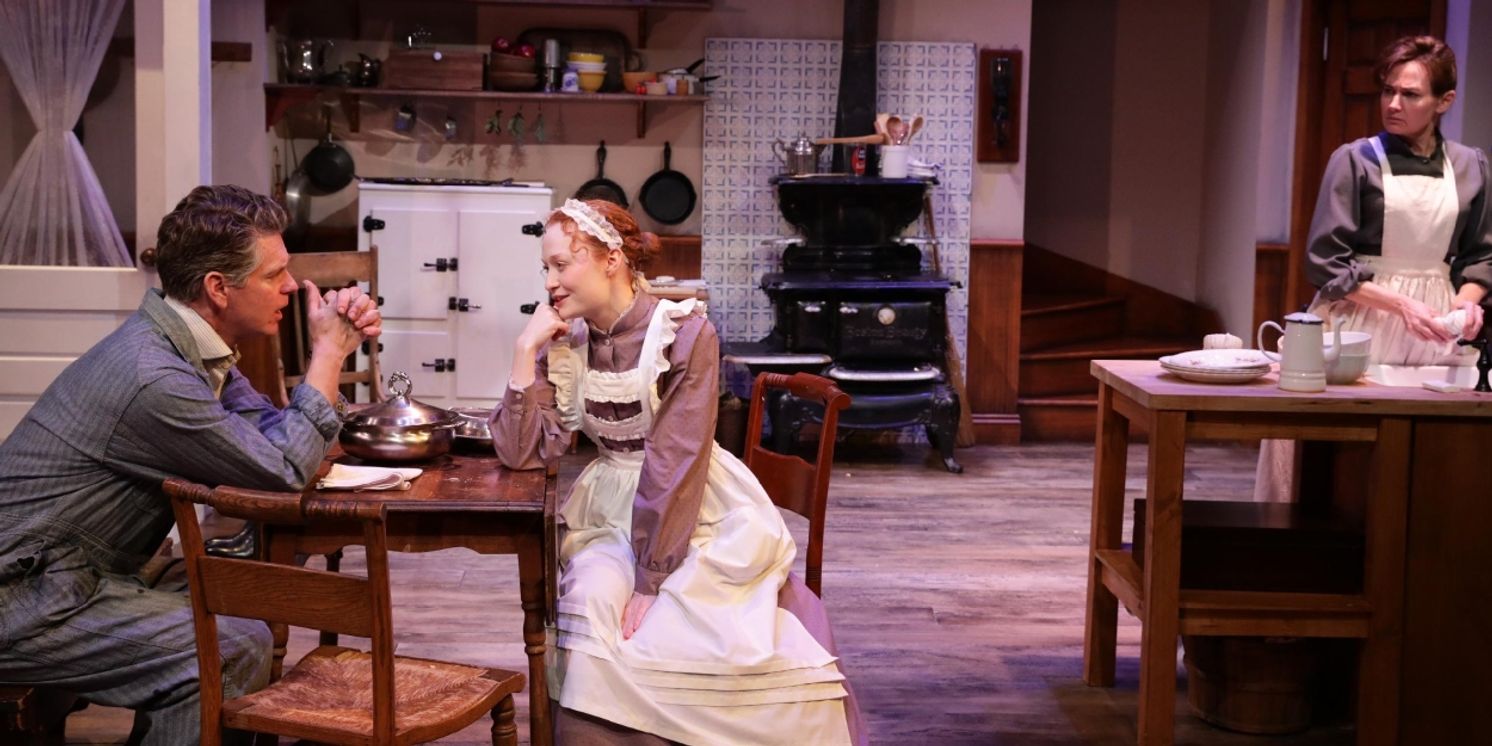Review: The Lyric Stage Company Of Boston Presents A First-Rate Production of THIRST
Production runs through March 17 at The Lyric Stage Company Of Boston.

The drama in Eugene O’Neill’s Pulitzer Prize-winning “Long Day’s Journey into Night” revolves around James and Mary Tyrone and their sons, Jamie and Edmund, and is set at the family’s seaside Connecticut home on a single day in August 1912.
It’s a big house, though, and on the other side of the kitchen wall, an entirely different story is unfolding in playwright Ronán Noone’s moving, finely crafted “Thirst,” being presented by the Lyric Stage Company of Boston through March 17.
Two Irish immigrants – Bridget Conroy, a hard-bitten cook whose many disappointments lead her straight to the bottle, and her niece, Cathleen Mullins, an ebullient young housemaid who that April survived the sinking of the Titanic – spend the day busily handling endless tasks in the company of Jack Smythe, an enterprising American chauffeur. Roiling tensions and bitterness about their lives of servitude, leavened at points by humor, are the order of the day as the down-trodden trio deals with their abandoned dreams and dispiriting misfortunes.
If the plot of “Thirst” sounds familiar, it is likely because of its direct similarity to Noone’s earlier play, “The Second Girl,” which featured the same three characters and setting and was given its world-premiere production by the Huntington in 2015. In a print interview leading up to Lyric Stage’s current offering, the Galway-born Noone, a longtime resident of greater Boston, described the earlier play as “overwhelmed by the shadow of O’Neill and the despair of those characters.”
In pre-opening press, Lyric Stage producing artistic director Courtney O’Connor – whose own grandparents emigrated from Roscrea, County Tipperary, to Philadelphia and lived “in service” to a wealthy family – said that Noone went back and “wrote a completely new play with the same set of characters” that moved the Tyrones further to the background and allowed the lives of his three hardscrabble characters to more fully occupy the spotlight.
O’Connor’s brisk-paced and respectful direction keeps clear focus on Bridget, Cathleen, and Jack. Indeed, the Tyrone family – nearby and dealing with their own demons – are rendered as little more than distant, muffled voices thanks to David Remedio’s haunting sound design. With a uniformly excellent cast, the presence of the unseen Tyrones is less of a distraction than one might imagine.
Aimee Doherty – best-known for leading roles in musicals – displays impressive dramatic chops as Bridget, the longtime servant braced by a mix of booze and wavering self-reliance, and pairs well with Michael Kaye’s Jack, whose affection for Bridget and eagerness to get ahead are palpable, while his backstory remains murky.
The play gets its real heart from Cathleen, the only one of these three characters who actually appears in the O’Neill play, as the sensitive young housemaid with a gentle soul, played with a perfectly balanced blend of heartbreak and hope by Kate Fitzgerald. Having survived a sinking ship, Cathleen has proven herself resilient, but in Fitzgerald’s deeply affecting performance we see that the young woman is as fragile as the egg shells broken to prepare the Tyrone's breakfast.
At one point, Bridget and Cathleen each separately dirty two clean bowls in prepping a meal – one for the eggs, one for the shells. That seems implausible, but Janie E. Howland’s splendidly designed set more than makes up for any such missteps. Indeed, the kitchen features a working sink and stove – the latter sending the irresistible smell of freshly cooked bacon wafting through the house.
Mikayla Reid’s period costumes and Karen Perlow’s layered lighting also add to the first-rate feel of the production. Dialect coach Rebecca Gibel has also done yeoman’s work in helping achieve the believability of the accents.
Photo caption: Michael Kaye, Kate Fitzgerald, and Aimee Doherty in a scene from the Lyric Stage Company production of “Thirst.” Photo by Mark S. Howard.
Reader Reviews
Videos

